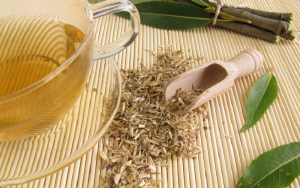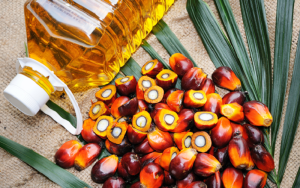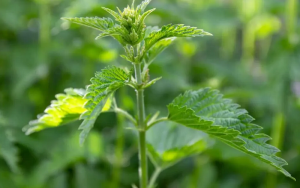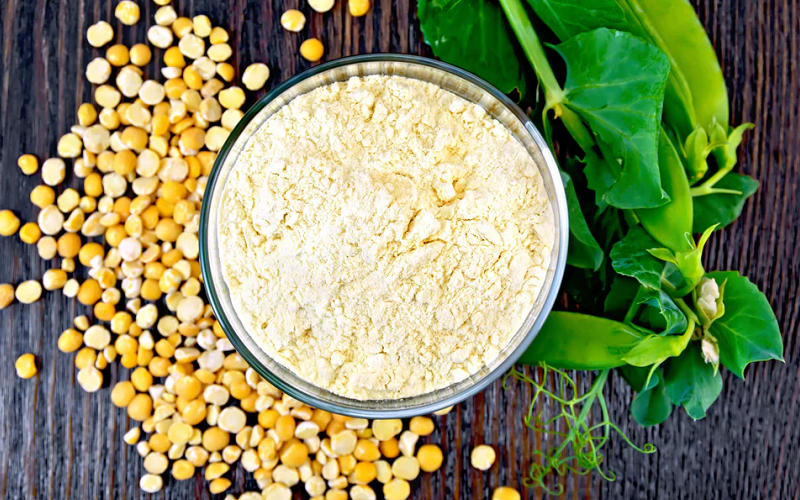
Pea protein and its remarkable potential to boost muscle recovery. In the realm of fitness and health, muscle recovery holds a spot of paramount importance.
In the realm of fitness and health, muscle recovery holds a spot of paramount importance. It’s the invisible phase of progress, where our bodies repair, strengthen, and grow. In this process, protein plays a leading role. But, not all proteins are created equal. Enter the world of plant-based proteins – a world that’s witnessing a surge of interest, with one star rising above the rest: pea protein.
Contents
Introduction to Muscle Recovery and Pea Protein
We live in a world where we push our bodies to their limits daily. Whether it’s an intense workout at the gym, a run in the park, or a demanding physical job, these activities put significant strain on our muscles. We are constantly tearing and breaking muscle fibers, creating the necessity for efficient muscle recovery. And this is where protein, especially pea protein, comes into play.
Brief Overview of the Blog Post
In this blog post, we will break down the importance of muscle recovery, the role of protein in this process, and the rise of plant-based proteins. We’ll delve into the specifics of pea protein – its composition, benefits, and how it can be incorporated into your daily diet. We’ll also touch on potential side effects and considerations, as well as provide an overview of commercially available pea protein products. Lastly, we’ll wrap up our discussion by sharing personal experiences and testimonials about pea protein and its impact on muscle recovery.
Importance of Muscle Recovery
Muscle recovery is the cornerstone of any fitness regime. It is during this period that our muscles repair themselves and grow stronger. Delayed or inadequate muscle recovery can lead to fatigue, injury, and stalled progress. Protein plays a crucial role in this repair and recovery process, acting as the building block for new muscle tissues.
Introduction to Pea Protein
While the benefits of protein for muscle recovery are widely known, what’s less recognized is the specific advantage of plant-based proteins, especially pea protein. The rise of veganism, vegetarianism, and overall health consciousness has led to a surge in demand for plant-based proteins. Among these, pea protein has emerged as a star player due to its rich amino acid profile, digestibility, and minimal environmental impact.
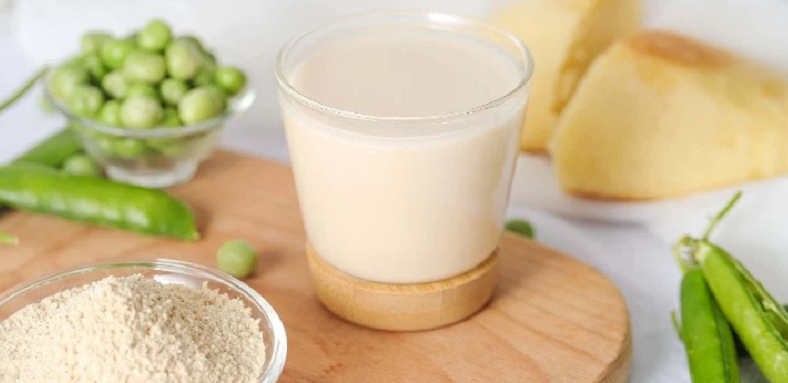
Understanding Protein and Its Role in Muscle Recovery
Before we venture into the specific benefits of pea protein for muscle recovery, it’s important to establish a fundamental understanding of protein as a whole. Protein, one of the three major macronutrients, has long been associated with strength and muscle growth, but its functions extend far beyond building a muscular physique.
The Function of Protein in the Body
Protein, composed of amino acids, serves several crucial functions in our bodies. It aids in the growth and repair of tissues, including muscles, skin, and hair. It also plays a vital role in the creation of enzymes and hormones, maintaining immune function, and serving as a source of energy when carbohydrates and fats are insufficient. With its myriad functions, it’s evident that an adequate protein intake is essential for overall health and wellbeing [1].
Specific Role of Protein in Muscle Recovery
Zooming into the role of protein in muscle recovery, it becomes apparent why it’s such a key player in any fitness regimen. When we engage in strenuous exercise, our muscles experience microscopic tears. It’s during the recovery period, with proper nutrition and rest, that these tears are repaired and muscles grow stronger.
Protein comes into play in this repair process. When we consume protein, it’s broken down into its constituent amino acids. These amino acids are then used to repair the damaged muscle tissues, promoting muscle growth and strength. Consuming an adequate amount of protein after exercise can significantly enhance muscle recovery and growth.
However, not all proteins are created equal when it comes to muscle recovery. The biological value, amino acid profile, and digestibility of a protein all contribute to its efficacy. This is where pea protein stands out, offering a unique blend of benefits that make it a powerful tool for muscle recovery.
The Rise of Plant-Based Proteins
As we have established, protein is vital for muscle recovery and growth. Historically, our primary source of protein has come from animal-based products like meat, dairy, and eggs. However, the tides are turning. Recent years have witnessed a surge in the popularity and acceptance of plant-based proteins, fuelled by a combination of health, ethical, and environmental considerations.
Evolution of Plant-Based Protein Sources
Plant-based proteins have come a long way from their humble beginnings. Initially, these proteins were often incomplete, meaning they lacked one or more of the nine essential amino acids that our bodies can’t produce on their own.
However, advancements in food science and technology have allowed us to source complete proteins from plant-based sources. Furthermore, combining different plant foods (like rice and beans) can provide all the essential amino acids, challenging the notion that only animal-based proteins are complete [2].
Comparison with Animal-Based Proteins
When comparing plant-based proteins with their animal-based counterparts, there are a few key differences. Animal proteins generally have a higher biological value, meaning they are more efficiently used by the body. However, plant-based proteins are often lower in saturated fats and cholesterol, and they provide additional nutrients like fiber, antioxidants, and phytonutrients.
Moreover, while animal proteins often come with ethical and environmental considerations, plant-based proteins like pea protein tend to have a smaller environmental footprint. They require less water and land and produce fewer greenhouse gases compared to conventional animal farming.
Current Trend Towards Plant-Based Diets
The growing awareness of the environmental, ethical, and health impacts of our dietary choices has sparked a global trend towards plant-based diets. These diets don’t necessarily exclude all animal products but instead focus on increasing the consumption of plant foods. In line with this trend, the demand for plant-based proteins has skyrocketed. Among these, pea protein has emerged as a top contender, thanks to its impressive nutrient profile and environmental sustainability.
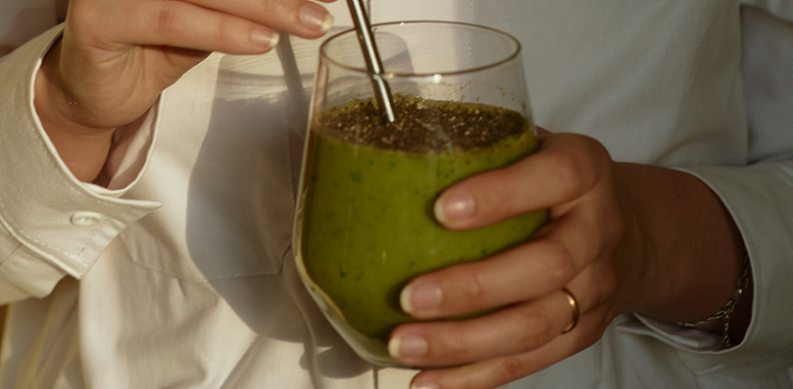
All About Pea Protein
As we move deeper into the world of plant-based proteins, it’s time to shed some light on our star player – pea protein. This protein-rich extract from the humble garden pea has quickly gained recognition for its impressive nutritional profile and potential health benefits. But what exactly is pea protein, and what makes it so special?
What is Pea Protein?
Pea protein is a high-quality, plant-based protein derived from yellow split peas. The peas undergo a process of drying and grinding, followed by the removal of starch and fiber. This leaves behind a concentrated protein substance – pea protein isolate. Its popularity stems from its high protein content, balanced amino acid profile, and its hypoallergenic nature, which makes it suitable for individuals with common food allergies or sensitivities.
Nutritional Composition of Pea Protein
Pea protein stands out in the plant-protein world for several reasons. One of the main advantages of pea protein is its richness in essential amino acids, particularly branched-chain amino acids (BCAAs) – leucine, isoleucine, and valine. These amino acids are key players in muscle protein synthesis, making pea protein an excellent choice for muscle recovery [3].
Furthermore, pea protein is naturally gluten-free and soy-free. It is also rich in iron, a nutrient often lacking in plant-based diets, and contains beneficial compounds like phenolic acids and flavonoids, which have antioxidant properties.
Extraction and Processing of Pea Protein
The extraction and processing of pea protein are fairly straightforward and involve minimal processing. The peas are first dried and ground into a fine flour. This flour is then mixed with water, allowing the protein to separate from the fiber and starch. The mixture is then further processed to remove any remaining non-protein components, resulting in a concentrated pea protein powder.
What makes pea protein truly shine is its minimal environmental impact compared to other protein sources. Peas are a sustainable crop that requires little water and no nitrogen fertilizers, as they can pull nitrogen from the air, enriching the soil they grow in.
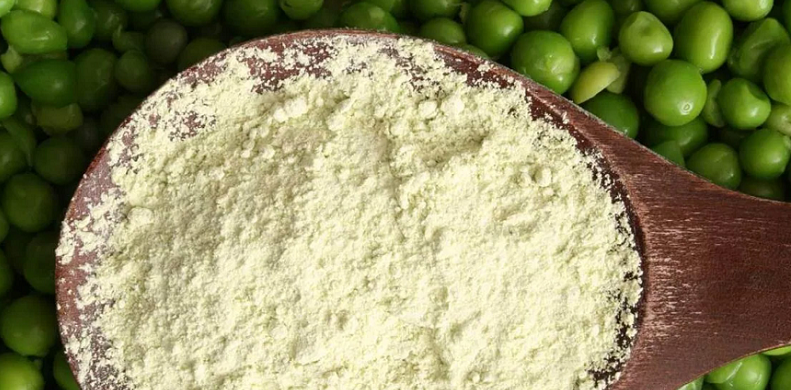
Benefits of Pea Protein for Muscle Recovery
With an understanding of what pea protein is and its nutritional composition, it’s time to dive into the core of the matter – the benefits of pea protein for muscle recovery. Although research on pea protein is still emerging, the studies we do have show promising results, demonstrating its efficacy in promoting muscle recovery and growth.
Evidence-Based Benefits of Pea Protein
Research has suggested that pea protein can be just as effective as animal-based proteins in promoting muscle recovery and growth. One of the standout features of pea protein is its rich content of branched-chain amino acids (BCAAs) – leucine, isoleucine, and valine. These amino acids are crucial for muscle protein synthesis, the process that helps repair and rebuild muscle tissues after exercise.
In a study published in the Journal of the International Society of Sports Nutrition, participants who consumed pea protein showed similar muscle thickness gains as those consuming whey protein. This indicates that pea protein can be a suitable alternative for those looking to enhance muscle recovery and growth on a plant-based diet [4].
Pea Protein Vs Other Plant Proteins for Muscle Recovery
When compared to other plant proteins, pea protein holds its own. Rice and soy proteins, two other popular plant-based protein options, are often compared with pea protein. While soy protein also contains all essential amino acids, it has been associated with potential allergenicity, making it unsuitable for some individuals.
Rice protein, while being hypoallergenic, is typically low in lysine, one of the essential amino acids. On the other hand, pea protein not only contains all nine essential amino acids, including a high level of BCAAs, but is also hypoallergenic and easily digestible. This makes it a versatile choice for a wide variety of individuals looking to enhance muscle recovery.
Case Studies and Research on Pea Protein
The scientific world has started to turn its attention to pea protein. Numerous studies and research have been conducted to evaluate the benefits of pea protein in various health aspects, including muscle recovery. As we have mentioned earlier, research indicates that pea protein can promote muscle thickness and recovery just as effectively as some animal-based proteins. With increasing interest in this plant-based powerhouse, we can expect to see more research validating its potential benefits in the future [5].
Potential Side Effects and Considerations
While pea protein is generally considered safe and well-tolerated, it’s essential to be aware of potential side effects and considerations. As with any dietary supplement, individual reactions can vary based on personal sensitivities and overall health status.
Digestive Concerns Associated with Pea Protein
One of the most common side effects associated with consuming pea protein is mild digestive discomfort. Some people may experience bloating, gas, or stomach cramps, especially when starting to consume pea protein. However, these symptoms often subside as your body adjusts to the new source of protein.
Remember, it’s essential to consume a balanced diet with a variety of protein sources, ensuring that you’re getting a mix of different nutrients. Incorporating pea protein into your diet gradually can help mitigate any potential digestive issues [6].
Allergic Reactions to Pea Protein
Although rare, allergic reactions to pea protein can occur. These reactions may include symptoms like hives, itching, wheezing, or difficulty swallowing. If you experience any of these symptoms after consuming pea protein, seek immediate medical attention.
While pea protein is often recommended as a hypoallergenic alternative to common allergenic proteins like soy and dairy, if you have a known allergy to peas or legumes, it’s recommended to avoid pea protein or to try it under the supervision of a healthcare professional.
Who Should Be Cautious of Pea Protein?
While pea protein is a safe and beneficial supplement for most people, there are certain individuals who should approach it with caution. As previously mentioned, those with an allergy to peas or legumes should avoid pea protein.
Additionally, individuals with kidney disease should be mindful of their protein intake. Consuming large amounts of any type of protein can put stress on kidneys that are already compromised. As always, it’s crucial to consult with a healthcare professional before starting any new dietary supplement regimen.
References
[1] 7 Pea Protein Powders That Actually Help You Build Muscle
[2] Go Pea: Pea Protein For Every Nutrition Plan
[3] Effects of Whey and Pea Protein Supplementation on Post-Eccentric Exercise Muscle Damage
[4] Pea proteins oral supplementation promotes muscle thickness gains during resistance training
[5] What Is Pea Protein—and What Are Its Benefits for Runners?
[6] Pea protein vs. whey protein for exercise recovery in older adults

